The Office of Faculty Development aids the work of faculty at Lake Forest College through a focus on three priorities:
We support faculty at all stages in their careers in developing effective pedagogical techniques that create an inclusive learning environment for our diverse student body.
We assist faculty in creating and sustaining a community of colleagues who learn from and support each other.
We facilitate and celebrate faculty achievement in scholarly and artistic production.
Services for Faculty
- General teaching consultations and mid-course checks
- Teaching Shapes program
- Mentoring program
- Orientation programs for new faculty
- Input on grant proposals
- Faculty writing retreats
- Advising training
- Grants for curricular development
- Programming for faculty development, including diversity, equity, and inclusion programming
Visit the Center for Academic Success for resources to assist students!

Todd Beer, Senior Faculty Associate
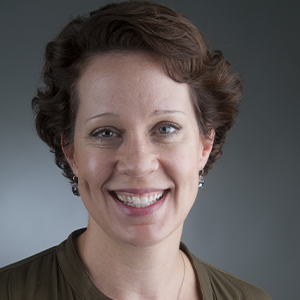
Elizabeth Benacka, Senior Faculty Associate

Chloe Johnston, Senior Faculty Associate

Ajar Chekirova, Junior Faculty Fellow
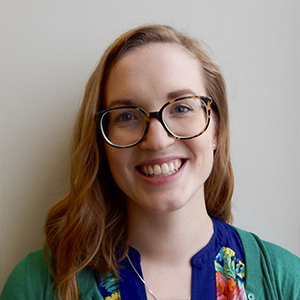
Rebecca Delventhal, Junior Faculty Fellow
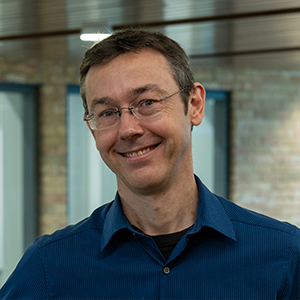
Andrew Gard, Junior Faculty Fellow
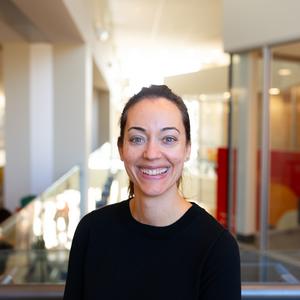
Ivana Uzelac, Director of Academic Technology
Office of Faculty Development Sessions 2024-2025
Contact Us
Gizella Meneses
Director, Office of Faculty Development
North Hall 201
meneses@lakeforest.edu
847-735-5279
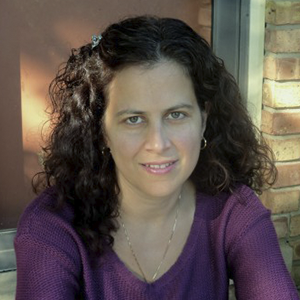
Fall 2024
Faculty and the Workplace
Mental Health and Community Care
Thursday, September 19
Noon
Session Leader: Ed Neumann, PsyD
Integrating Academic Freedom and Inclusion in Liberal Arts Education
Tuesday, September 24
Noon
Session Leaders: Todd Beer, Nevin Heard, and Anna Jones
FIYS and AI: A Humanities Lens
Wednesday, October 23
Noon
Session Leaders: Andrew Gard, Rebecca Graff, Gary Johnson, and Chloe Johnston
Diversity, Equity, Inclusion, and Belonging (DEIB)
Symplicity: Accommodate Overview
Wednesday, September 11
4:00 p.m.
Session Leader: Kirsten Schramm
A Reflection on and Reconsideration of Student Evaluations of Teaching
Tuesday, October 15
4:00 p.m.
Session Leader: Cassondra Batz-Barbarich
The Office of Intercultural Relation’s DEIB Initiatives
Thursday, November 7
Noon
Session Leaders: OIR Staff
Faculty Success Series
Leveraging AI in Education
Tuesday, September 17
4:00 p.m.
Session Leader: Ivana Uzelac
Bridging the Gap: Generative AI in Education—A Student and Faculty Dialogue
Wednesday, October 9
4:00 p.m.
Session Leader: Ivana Uzelac and Student Panel
So, You Want to Advise on Internships?
Tuesday, October 22
Noon
Session Leader: Katie Isler
What To Know Before Third-Year Review
Thursday, November 21
4:00 p.m.
Faculty and the Workplace
Mental Health and Community Care
Join Health and Wellness staff to discuss the mental health trends on campus and how faculty and other community members can support people experiencing mental health struggles. This conversation will include a discussion of the mental health needs of our students and how best to connect students with the appropriate resources.
Integrating Academic Freedom and Inclusion in Liberal Arts Education
This past July, the Associated Colleges of the Midwest hosted a workshop titled, Empowering Educators: Integrating Academic Freedom and Inclusion in Liberal Arts Education. The session leaders were attendees at this workshop and will share with the Lake Forest College community an overview of the workshop, including two case studies.
FIYS and AI: A Humanities Lens
Several FIYS courses, with the support of the HUMAN (Humanities Understanding of the Machine-Assisted Nexus) project, created AI-themed First-Year Studies courses to explore the intersection of the humanities and the domains of artificial intelligence. Participating faculty will share the technological advancements connected to AI through a humanities lens that is historical, practical, and attuned to questions of ethics and social justice.
Diversity, Equity, Inclusion, and Belonging (DEIB)
Symplicity: Accommodate Overview
Join Kirsten Schramm, Associate Director of Accessibility Services, to review Symplicity-Accommodate, the new platform supporting the Accessibility Services office. Participants will receive a general overview of the system, learn how to access important information, and how to share information with the testing center.
Attendees are encouraged to bring their computers/personal devices to this session.
A Reflection on and Reconsideration of Student Evaluations of Teaching
The importance of student evaluations of teaching (i.e., SETs) is undisputed – both for professional development and for promotional purposes. However, it is also well understood that the evaluation process is susceptible to gender and racial bias. Though some strategies exist at both faculty and institution levels to mitigate this bias. In this session, we will briefly discuss the literature on bias within SETs and the strategies that may be useful to mitigate it. We then will discuss our own concerns with SETs and what changes we might implement in our own classrooms and changes we may wish to submit to FPPC at the institutional level.
The Office of Intercultural Relation’s DEIB Initiatives
The purpose of this session is to share information and generate open dialogue around two important student-centered projects OIR has been developing since the last academic year. The DEIB initiatives are supported by the work of our two DEIB Fellows, an internship-level campus job where students conducted research on evidence-based best practices for student support and were selected to present their findings at a national conference. Currently, our DEIB initiatives are centered around building support for our Undocumented students and our Black students. We are excited to share more information about the work OIR is doing, as well as explore avenues for collaboration with other campus offices.
Faculty Success Series
Leveraging AI in Education
- Practical workshop on integrating AI tools like ChatGPT for personalized student feedback and automated grading.
- Hands-on experience testing prompts.
- Case studies of successful AI integration in higher education.
Pre-session material: Book: Teaching with AI and Mollick
Bridging the Gap: Generative AI in Education—A Student and Faculty Dialogue
Content: Panel of diverse students sharing experiences with GenAI. Recent article
- How students are using AI for studying, research, and completing assignments
- Personal anecdotes and specific examples of AI tools in action
- Perceived benefits and drawbacks of using AI in education
- Moderated Q&A session with pre-submitted and live questions from faculty
Follow-up: Summary report of key insights and action items for faculty.
So, You Want to Advise on Internships?
Internships are the launchpad for skill development and a resume booster. But for advisors and students, navigating the landscape can be tricky. In this interactive session, we will demystify internships, equipping you with the knowledge to confidently guide students. We will delve into understanding the different internship options and policies and unpack how students can effectively work with the Career Advancement Center to find the perfect internship for them. Come prepared to ask your burning questions. Leave empowered to be a valuable resource for your students.
What To Know Before Third-Year Review
Spring 2025
Faculty and the Workplace
Faculty Elections: Voting Ballots for 2025
Tuesday, January 21
4:00 p.m.
Session Leader: Fran Pease
Contemplative Pedagogy: Meditation in the Liberal Arts Classroom
Wednesday, January 22
Noon
Session Leader: Anya Golovkova
Let’s Talk About Service
Monday, February 3
4:00 p.m.
Session Leaders: Ben Zeller and Liz Benacka
Self-Care as Community Care
Wednesday, February 26
4:00 p.m.
Session Leader: Ashley Wood, Psy.D.
Diversity, Equity, Inclusion, and Belonging (DEIB)
Reflecting on Ableism in our Classrooms
Monday, January 27
Noon
Session Leader: Roshni Patel
Accessibility and Technology: Tips on Course Materials
Tuesday, February 11
Noon
Session Leaders: Kirsten Schramm and Ivana Uzelac
Supporting Undocumented Students Workshop
Monday, March 3
Noon
Session Leader: Student panel
Faculty Success Series
AI Use in the Classroom
Wednesday, January 29
Noon
Session Leaders;: Karen Kirk, Davis Schneiderman, Nancy Tao, and Ben Zeller
Generative AI and Education
Thursday, March 20
4:00 p.m.
Session Leaders: Bill Cope and Mary Kalantzis
Preparing Yourself for the Tenure Process
Thursday, April 10
4:00pm
Recalibrating Post-Tenure
Wednesday, April 16
4:00 p.m.
Faculty and the Workplace
Faculty Elections: Voting Ballots for 2025
Find out who is on the ballot and how voting is organized.
Contemplative Pedagogy: Meditation in the Liberal Arts Classroom (No previous experience necessary)
Meditation has been at the heart of the traditional yoga practice in South Asia since about 500 BCE. Research shows that meditation and contemplation foster additional ways of knowing and offset the constant distractions of multitasking, multimedia culture. We will workshop ways in which meditation can be incorporated in classroom settings as part of an accessible, non-sectarian, yet culturally responsible contemplative practice to help enhance focus, strengthen resilience, and meet the needs of today’s students in creative and innovative ways.
Let’s Talk About Service
Current and former FPPC Chairs discuss how committee service appointments are made and what faculty should know about service pre- and post-tenure.
Self-Care as Community Care
Join Health and Wellness staff to discuss the importance of community care on campus. This conversation will include tips about how to engage effectively in our own self-care behaviors as a way of role modeling successful coping skills for our students and for cultivating a community of care. This will include a discussion about the importance of setting and respecting healthy boundaries in the pursuit of community care.
Diversity, Equity, Inclusion, and Belonging (DEIB)
Reflecting on Ableism in our Classrooms
This session will present some relevant features of ableism as it occurs in higher education in the United States with special focus on the classroom. Our primary goal will be to gather a tangible understanding of ableism's forms in terms of expectations and structures, as well as the deeper attitudes that delude us into understanding these as merely natural or rigorous. This sort of reflection invites us to consider how our classrooms could be inclusive in ways that extend past formal accommodations and legal compliance. In addition to hearing about how researchers and scholars are thinking about these matters, as well as the degree to which we ourselves enact or avoid ableist biases, we also will consider how our conduct models principles of inclusivity for our students.
Accessibility and Technology: Tips on Course Materials
Associate Director of Accessibility Services, Kirsten Schramm and Director of Academic Technology, Ivana Uzelac, will demonstrate basic ways to make class materials accessible for all students. We will review Microsoft Office applications and free technology resources to improve access to materials.
Attendees are encouraged to bring their computers/personal devices to this session.
Supporting Undocumented Students Workshop
This interactive session will provide an overview of practical tools and strategies to effectively support and advocate for undocumented students. Faculty and staff can expect to practice different real-life scenarios and generally learn about resources available to undocumented students both on and off campus.
Inclusive Classrooms and Student Spaces
Faculty Success Series
AI Use in the Classroom
Please join us to learn more about AI use in the classroom, including how to craft assignments, address academic integrity, develop and design prompts, and how to use AI in student research.
Generative AI and Education
Special feature: Professor Bill Cope to visit campus, including a keynote address and Q&A session. Bill Cope is a prominent professor at the University of Illinois Urbana-Champaign (UIUC), specializing in educational technology and artificial intelligence in education. His research focuses on the pedagogical affordances of technology-mediated learning environments.
Preparing Yourself for the Tenure Process
Recalibrating Post-Tenure
Past Events – Spring 2024
Faculty and the Workplace
Faculty Elections: Voting Ballots for 2024
Tuesday, January 23
Noon
Session Leader: Fran Pease
Find out who is on the ballot and how voting is organized.
Accommodations: A Guide on the Process and Implementation
Wednesday, January 31
Noon
Session Leader: Kirsten Schramm
Associate Director of Accessibility Services, Kirsten Schramm, will review how students are approved for reasonable accommodations, aspects of the law dictating the accommodation process, and ways LFC's most occurring accommodations can be supported.
Let's Talk About Service
Wednesday, February 21
4:00 p.m.
Session Leaders: Ben Zeller and Liz Benacka
Current and former FPPC Chairs discuss how committee service appointments are made and what faculty should know about service pre- and post-tenure.
Community Care: Building a Culture of Care
Thursday, March 7
Noon
Session Leaders: Dr. Ashley Wood
Join Health and Wellness staff to discuss the importance of developing a culture of care and support on campus. This conversation will include tips about how to engage effectively in our own self-care behaviors as a way of role modeling successful coping skills for our students. This will include a discussion of different stress management techniques students, faculty, and staff can employ and the importance of setting and respecting healthy boundaries in the pursuit of community care
Advising (Two Sessions)
Monday, March 18 at Noon
Tuesday, March 19 at 4:00 p.m.
DO Library 203
Session Leader: Matt Kelley
Diversity, Equity, Inclusion, and Belonging (DEIB)
Brown Bag Lunch: Creating Inclusive Classrooms and Student Spaces Series (Part II)
Tuesday, February 6
Noon
Session Leader: Nevin Heard, Office of Intercultural Relations
The Brown Bag Lunch Series offers an informal space for faculty and staff to gain an understanding of inclusive practices pertaining to specific marginalized identities or sociocultural issues. Attendees are invited to actively engage in discussion around sensitive topics with the aim of creating greater belonging campus wide.
The Creating Inclusive Classrooms & Student Spaces Series Brown Bag Lunch will discuss pedological and pragmatic practices for furthering inclusion and belonging in the classroom and other spaces frequented by students. Part I will allow for the sharing of foundational knowledge for taking a student-centered approach through an equity lens and mindset. Part II of the series will take a deeper and more nuanced approach to analyzing and overcoming barriers to incorporating inclusion and belonging. The sessions in this series build upon each other but are not required for attendance.
Supporting Undocumented Students: A Hands-On Workshop
Wednesday, March 20
Noon
Session Leader: Ninna Villavicencio, Office of Intercultural Relations
This interactive session will provide an overview of practical tools and strategies to effectively support and advocate for undocumented students. Faculty and staff can expect to practice different real-life scenarios and generally learn about resources available to undocumented students both on and off campus.
Inclusive Disability Practices
Thursday, April 4
Noon
Session Leader: Kirsten Schramm
Associate Director of Accessibility Services, Kirsten Schramm, will review different types of disabilities frequently seen at Lake Forest College, inclusive practices to support disabled students, and an overview of legal obligations as it pertains to ADA.
Faculty Success Series
ChatGPT and Higher Ed: One Year In
Tuesday, January 23
4:00 p.m.
Remote Session
Session Leader: Autumm Caines, Instructional Designer, University of Michigan – Dearborn
We are now one year into a world with ChatGPT which has brought the potential for both positive and negative impacts in higher education. With a rapidly changing news cycle around these tools it is crucial for educators to stay informed. This session offers a deep dive into the impacts of large language models, examining both their potential and challenges. To set the stage for a broader understanding of ChatGPT's role in academia we begin with a brief history, essential definitions, and updates we've seen to the tech over this past year. We then continue on with key areas of focus including privacy concerns, where we'll address how ChatGPT intersects with data security and personal information. The critical issue of academic integrity is also at the forefront, exploring ChatGPT's dual role as both a facilitator and a potential disruptor in educational settings. We'll conclude with a discussion on policy formulation, aiming to guide educators in harnessing ChatGPT's capabilities responsibly and effectively in their teaching and learning practices.
Teaching with Bots: A Practical ChatGPT Workshop for Educators
Tuesday, February 20
4:00 p.m.
Session Leaders: Alex Cates and Kimiko Matsumura
Join us for an interactive session that offers a hands-on introduction to ChatGPT. Bring your laptops and practice using ChatGPT and other AI through teaching-focused demonstrations and discuss how AI technology can enhance classroom dynamics and student engagement. We will walk through how to use ChatGPT to outline a day in your class including lecture ideas, classroom activities, assessments, and rubrics. Explore how to work with AI to accomplish more and create a better experience for your students, all while keeping the essential human in the loop.
Extramural Funding Resources: Administrative Support for Research and Sabbatical Grant Awards
Wednesday, February 28
4:00 p.m.
Remote Session
Session Leader: Edwin Hunt, Consulting Director of the Office of Grants & Sponsored Research—Lake Forest College
The content of this workshop session includes, but is not limited to: discussion of funding resources in general and by type; the process of identifying potential funding resources for research and sabbatical grant support; targeted extramural funding resources reports for faculty; best practices regarding the development and submission of an application, proposal, and/or letter of intent/interest for all types extramural grant awards.
Preparing Yourself for the Tenure Process and Recalibrating Post-Tenure
Thursday, April 18
4:00 p.m.
Past Events – Fall 2023
Faculty and the Workplace
Faculty Elections: How do they work?
Monday, October 2
4:00 p.m.
Session Leader: Fran Pease, Assistant Dean of the Faculty
What is the process of our campus elections? How is each division represented? How do we vote and what is the timeline?
Community Care: Let’s Talk About Mental Health
Tuesday, September 26
Noon
Session Leaders: Dr. Ed Neumann
Join Health and Wellness staff to discuss the best ways to support students’ mental health needs throughout the upcoming year. This conversation will include a discussion of the mental health needs of our students, tips on how to identify students in distress, and suggestions about how best to connect students with the resources they need.
Diversity, Equity, Inclusion, and Belonging (DEIB)
Brown Bag Lunch: Creating Inclusive Classrooms and Student Spaces Series (Part I)
Monday, October 23
4:00 p.m.
Session Leader: Nevin Heard, Office of Intercultural Relations
The Brown Bag Lunch Series offers an informal space for faculty and staff to gain an understanding of inclusive practices pertaining to specific marginalized identities or sociocultural issues. Attendees are invited to actively engage in discussion around sensitive topics with the aim of creating greater belonging campus wide.
The Creating Inclusive Classrooms & Student Spaces Series Brown Bag Lunch will discuss pedological and pragmatic practices for furthering inclusion and belonging in the classroom and other spaces frequented by students. Part I will allow for the sharing of foundational knowledge for taking a student-centered approach through an equity lens and mindset. Part II of the series will take a deeper and more nuanced approach to analyzing and overcoming barriers to incorporating inclusion and belonging. The sessions in this series build upon each other but are not required for attendance.
Advising Student Empowerment Groups and & Student Organizations
Tuesday, November 7
Noon
Panel: Ninna Villavicencio, Courtney Joseph, Tessa Sermet, and Deja McClellan
Learn about our student empowerment groups and student organizations, how we advise, what role faculty and staff play, and the importance of these groups on our campus.
Color-blind racial ideology and STEM instructor's beliefs and practices
Wednesday, October 18
4:00 p.m.
Remote Session
Session Leader: Professor Tatiane Russo-Tait, University of Georgia
This seminar will explore how "color-blind" or color-evasive racial ideology can inform STEM instructors’ equity-related beliefs in ways that constrain their ability to disrupt deficit narratives, appropriately support students from racially minoritized backgrounds, and recognize their own responsibility in ameliorating racial injustice in their spheres of influence. Critical consciousness development is key for instructors to individually and collectively advance racial justice in STEM learning environments.
Faculty Success Series
Assessing Critical Thinking at the Department Level: Strategies for Showcasing Student Skills
Monday, September 18
4:00 p.m.
Session Leader: Holly Swyers, Chair, Assessment Committee
How does your discipline see evidence of critical thinking, and how well can your students articulate their critical thinking skills to potential employers and graduate programs? This session is geared toward helping departments articulate and develop evidence-based (and accreditation supporting) claims about how your majors will bring sought after skills into their professional lives.
Navigating the AI Landscape: Opportunities and Challenges
Tuesday, September 5
4 p.m.
Session Leader: Rachel Whidden & Research Assistant, Sophia Timm
As AI technology, particularly ChatGPT, becomes more prevalent in educational settings, it is important for faculty to understand the capabilities and limitations of this cutting-edge technology. Join us as we present the findings of our summer research, address the recent concerns surrounding generative AI usage and explore strategies for developing a balanced approach to integrating AI technology into the learning process.
Finding Statistics and Data through the Library
Wednesday, October 11
Noon
Session Leader: Tommy Crawford, Reference & Instruction Librarian
Through a partnership with the Applied Data Center and the Library, the College has acquired access to Statista, a new data and statistics database. This session will introduce faculty to the ways which they and their students can use Statista in their courses and personal research. We’ll explore how to find statistics, industry reports, forecasts, infographics, and more.
Maximizing Research Productivity with Students without Sacrificing Teaching Quality
Wednesday, November 8
Noon
Session Leader: Vivian Ta
This session will focus on how to incorporate students into your research program in a productive manner during the academic school year without sacrificing teaching quality or your mental health. Topics include strategies to more efficiently: manage and maintain a large research lab, work with students in every stage of the research process, and publish on a regular basis.
What to Know Before Third-Year Review
Monday, November 27
4:00 p.m.

